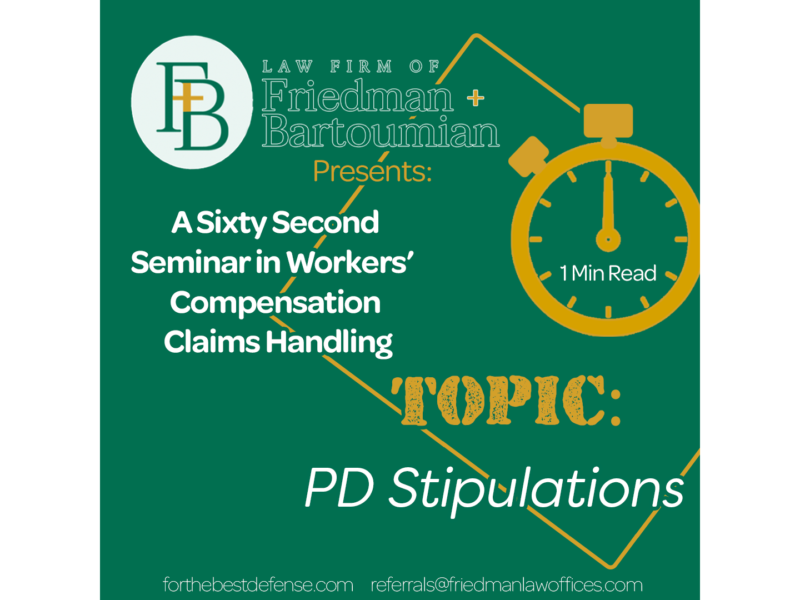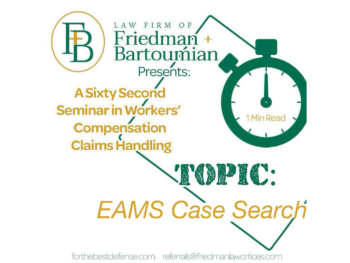Oftentimes a primary treating physician (PTP) and a qualified medical examiner (QME) disagree over the extent of Permanent Disability. One physician may identify permanent impairment at 40%, while the other rates it at 60%. When PD falls within a range, parties will often split the difference to achieve settlement. In our 40%-60% example, a split at 50% PD would most likely occur. The next step in the process is to explain to a Workers’ Compensation Judge how the parties arrived at the agreed rating to enable an award to be issued. We suggest the following language be used as a guide when stipulating to PD under this scenario:
“A dispute exists as to the extent of PD as identified in the (xx/xx/xxxx) report of PTP Dr. Jones and the (xx/xx/xxxx) report of QME Dr. Smith. Dr. Jones’ report rates out at 40% while Dr. Smith’s rates at 60%. Therefore, the parties hereby stipulate that where PD falls within the range of 40% through 60%, the rating shall be 50%.”
The above recommended language allows the parties to easily explain to the judge how PD was arrived at, but more importantly, it will have a major impact should either party later attempt to petition to reopen the case.
In our example, if new and further disability is later sought, normally the applicant would be required to prove the existence of a PD greater than the awarded 50% rating. However, because of the stipulation language used, the applicant must prove a PD greater than 60% to successfully reopen. Again, look at the language. It says: “The parties hereby stipulate that where PD falls within the range of 40% through 60%, the rating shall be 50%.”
This stipulation works both ways. Should the employer file a Petition to Reduce PD, the employer must prove PD below 40% for the same reasons mentioned above. When PD is based on a range, reopening requires the new level of PD to be beyond or below that range.
As a last recourse when dealing with a difficult applicant attorney who disagrees with the premise that new and further PD must exceed the range instead of the awarded PD, we suggest filing a “Petition to Enforce Stipulations.” By using the language recommended above, the parties will have entered a binding stipulation addressing how PD is to be determined, which could not have been clearer.



 When Not to Serve a Claim Form: A Sixty-Second Seminar in Workers’ Compensation Claims Handling
When Not to Serve a Claim Form: A Sixty-Second Seminar in Workers’ Compensation Claims Handling
Leave a Reply